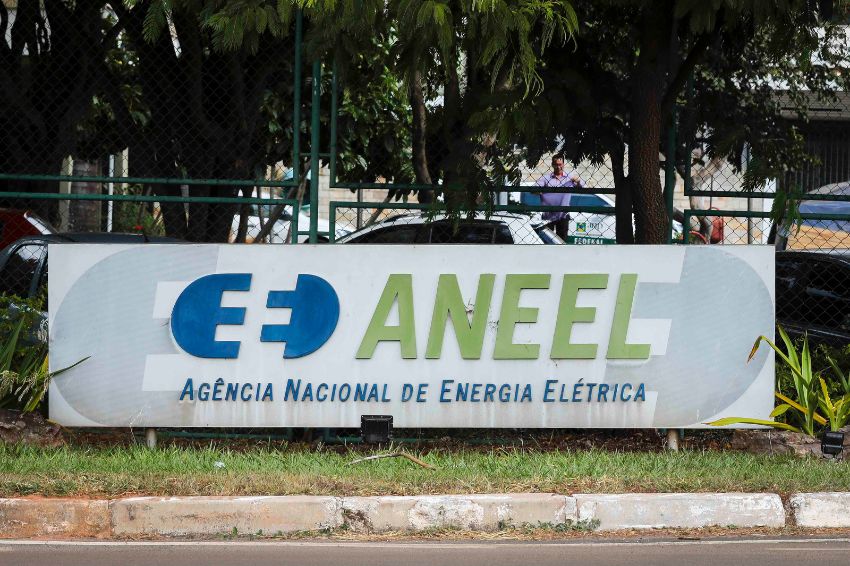A ANEEL (National Electric Energy Agency), established by Law 9,427/1996 which governs the regime for concessions of public services electricity, its purpose is to regulate and monitor the production, transmission, distribution and sale of electrical energy, in accordance with the policies and guidelines of the federal government.
This obligation determines the total transparency of the regulatory body in the energy area, which also has the duty to inspect data relating to administration, accounting, technical, economic and financial resources of all energy concessionaires in Brazil.
Other responsibilities of the Agency are prescribed in articles 29 and 30 of the Law No. 8,987/1995 and are applicable to electrical energy services, with ANEEL being especially responsible for:
- Implement federal government policies and guidelines for the exploration of electrical energy and the use of hydraulic potentials;
- Promote tenders aimed at contracting public service concessionaires for the production, transmission and distribution of electrical energy and for the granting of concessions for the use of hydraulic potentials;
- Enter into and manage concession or permission contracts for public electricity services, concession for the use of public property,
- Issue authorizations, as well as monitor, directly or through agreements with state bodies, concessions and the provision of electricity services;
- Resolve, at the administrative level, disagreements between concessionaires, permit holders, authorized producers, independent producers and self-producers, as well as between these agents and their consumers;
- Establish the criteria for calculating the energy transport price and arbitrate their values in cases of frustrated negotiations between the agents involved;
- Coordinate with the regulatory body for the fossil fuel and natural gas sector the criteria for setting transport prices for these fuels, when intended for the generation of electricity, and for arbitrating their values, in cases of frustrated negotiations between the agents involved.
Therefore, in its inspection exercise, the ANEEL has the duty to:
- Regulate the service provided and permanently monitor its provision;
- Apply regulatory and contractual penalties;
- Intervene in the provision of the service, in the cases and conditions provided for by law;
- Terminate the concession, in the cases provided for in this Law and in the manner provided for in the contract;
- Approve adjustments and review tariffs in accordance with this Law, the relevant standards and the contract;
- Comply with and enforce the regulatory provisions of the service and the contractual clauses of the concession;
- Ensure the good quality of the service, receive, investigate and resolve complaints from users, who will be notified, within thirty days, of the measures taken;
- Declare the assets necessary for the execution of the public service or work to be of public utility, promoting expropriations, directly or through the granting of powers to the concessionaire, in which case the latter will be responsible for the applicable compensation;
- Declare of public necessity or utility, for the purposes of establishing administrative servitude, the assets necessary for the execution of a public service or work, promoting it directly or through the granting of powers to the concessionaire, in which case the latter will be responsible for the applicable compensation;
- Stimulate the increase in quality, productivity, environmental preservation and conservation;
- Encourage competitiveness; It is
- Encourage the formation of user associations to defend interests related to the service.
In ANEEL's list of duties and obligations we do not find any rules for legislating on public policies – a role that falls to Federal and State Laws and Decrees on specific subjects.
With the advancement of technology, self-generation of energy by consumers (individuals or legal entities) has become a trend not only in Brazil, but throughout the world.
The expectations of the majority of consumers, eager to generate their own energy, grew in the same proportion as the DG (distributed generation) model began to generate reductions in electricity bills.
And it was abruptly interrupted by ANEEL's Normative Resolution 1,059/2023, which brought illegalities in its text that contravene Law 14,300/2022 – the result of a struggle by the DG sector in consensus with the market, including the Agency itself.
Due to the Agency's new Resolution 1,059, all energy users in distributed generation, especially microgeneration, were extremely harmed and the entire sector showed isolated and unnecessary actions.
So, to organize the fight won through Law 14,300/2022, entities in the sector need to organize and come together again – in order to adjust the recently published Normative Resolution 1,059/2023 – which went beyond the power to regulate and supervise the bring “new rules” and regulatory points contrary to the aforementioned GD Law.
Marcos Cintra, in his brilliant article, published on February 16, 2023, reports how disorganized we are when it comes to the SEB (Brazilian Electricity Sector).
“Electricity Sector: time for cooperation for the common interest: says that the action in Brasília of more than two dozen sectoral associations defending specific and often incoherent interests generates a feverish turmoil that shakes up an institutional environment that is already structurally fragmented. The lack of dialogue and coordination between segments makes the integration of agendas difficult and prevents the formation of minimum consensus. Without having a systemic vision that guides everyone, representative entities and economic agents have incentives to operate individually in search of exclusive benefits. In this scenario, everyone participates in Aneel's contributions, consultations and public hearings – a means available for improving the rules –, but if they are unable to make their points of view prevail, they appeal to politics or justice. By regularly appealing against regulatory decisions, entities and agents collaborate to weaken the role of Aneel, a central institution for maintaining a relatively predictable business environment”.
In this line, in order to have control over Legality at ANEEL, as expressly provided for in article 30, sole paragraph of Law 8,987/1995, it is urgent that the sector, trade associations, energy consumers and entrepreneurs in the DG segment are aligned in making comply with Law 14,300/2022 and fight for the creation of this commission.
Let's move forward and work on regaining the space of distributed generation on the national scene with the creation of this New Supervisory Commission.
The opinions and information expressed are the sole responsibility of the author and do not necessarily represent the official position of Canal Solar.

















One Response
I worked for a few years in the Telecommunications sector where the regulatory agency is ANATEL, my perception is that ANATEL is on the side of consumers who are the most fragile part of this system. ANEEL, on the other hand, appears to be on the side of the distributing, transmitting and energy generating corporations. Since I started working in the sector, I have never seen her make a decision that favors consumers, especially distributed generation. Start with the deadlines given to resolve a problem. 5 days after you make a complaint to the distributor, you then file a complaint with the distributor's ombudsman, who has another 15 days to respond and only then do you complain to ANEEL, which gives you another 15 days.